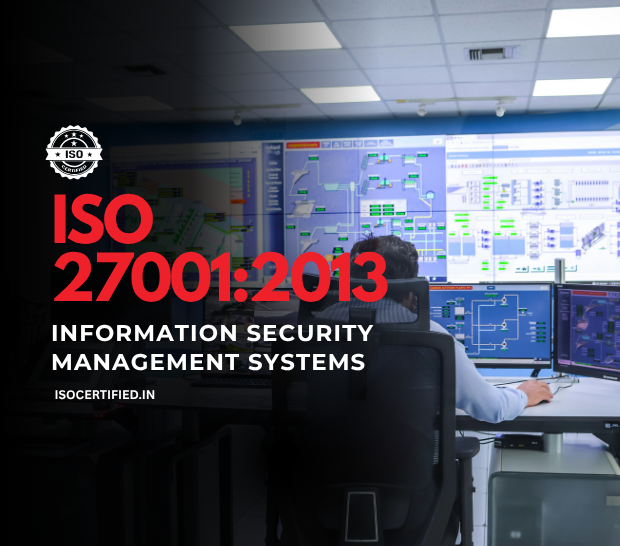- Globally Recognized Certification
ISO 27001:2013 - Information Security Management Systems
ISO 27001:2013 provides a systematic framework for managing sensitive information security through risk assessment, controls implementation, and continuous monitoring to protect data confidentiality, integrity, and availability.
Request A Free Quote
What is ISO 27001:2013 Certification?
ISO 27001:2013 is the internationally recognized standard for establishing, implementing, and maintaining an Information Security Management System (ISMS) that protects organizational data assets from cyber threats, breaches, and unauthorized access. It provides a risk-based approach to identify vulnerabilities, implement appropriate security controls from 114 specified measures, and establish policies for handling sensitive information across people, processes, and technology. This certification demonstrates an organization’s commitment to protecting customer data, intellectual property, and business-critical information.
The standard requires systematic risk assessment, documented security procedures, incident response protocols, and regular audits to ensure ongoing compliance and effectiveness. Organizations certified under ISO 27001:2013 prove their ability to safeguard information against evolving cyber threats, meet legal and contractual obligations, and maintain stakeholder trust in an increasingly digital business environment where data breaches can result in severe financial and reputational damage.

- Benifits
Key Benefits of ISO 27001:2013 Certification
ISO 27001:2013 strengthens cyber defenses, ensures regulatory compliance, builds customer trust, and reduces security incident costs.
Enhanced Cyber Protection
Comprehensive security controls and risk management processes protect against data breaches, ransomware attacks, and unauthorized system access.
Regulatory Compliance Achievement
Structured framework satisfies GDPR, HIPAA, and industry-specific data protection requirements, avoiding penalties and legal consequences.
Increased Customer Confidence
Certified information security demonstrates commitment to protecting client data, strengthening business relationships and competitive positioning.
Reduced Security Costs
Proactive threat management minimizes incident response expenses, recovery costs, and financial losses from data breaches or system downtime.
- Standard Process
Your Path to ISO Certification
Four straightforward steps to achieve ISO certification: consultation, documentation, payment, and certificate delivery—all managed remotely for your convenience.
Free Consultation
Connect with our ISO experts to discuss your certification needs and requirements.
E-mail Documents
Submit your organization's documents and information securely via email.
Make Payment Online
Complete your payment conveniently through our secure online payment gateway.
Get ISO Certificate
Receive your internationally recognized ISO certification upon successful audit completion.
- Which Industries?
Who Needs This
Organizations handling sensitive data or requiring proven information security credentials for client contracts and regulatory compliance.
E-commerce & Retail
IT & Technology Services
Healthcare & Pharmaceuticals
Banking & Financial Services
- Ongoing Requirements
Compliance & Maintenance
Post-certification, organizations must fulfill ongoing requirements including annual surveillance audits, internal reviews, and recertification to maintain their ISO certificate validity.
Annual Surveillance Audits
Certification bodies conduct yearly audits to verify continuous compliance with ISO standards and ensure your management system remains effective and up-to-date.
Recertification Every 3 Years
Complete recertification audit required every three years to renew your ISO certificate and demonstrate sustained commitment to quality management excellence.
Internal Audits & Reviews
Regular internal audits and management reviews must be conducted to monitor performance, identify improvements, and prepare for external certification audits.
Documentation & Training Updates
Maintain current documentation, update procedures for process changes, and provide ongoing training to employees on ISO requirements and their responsibilities.
